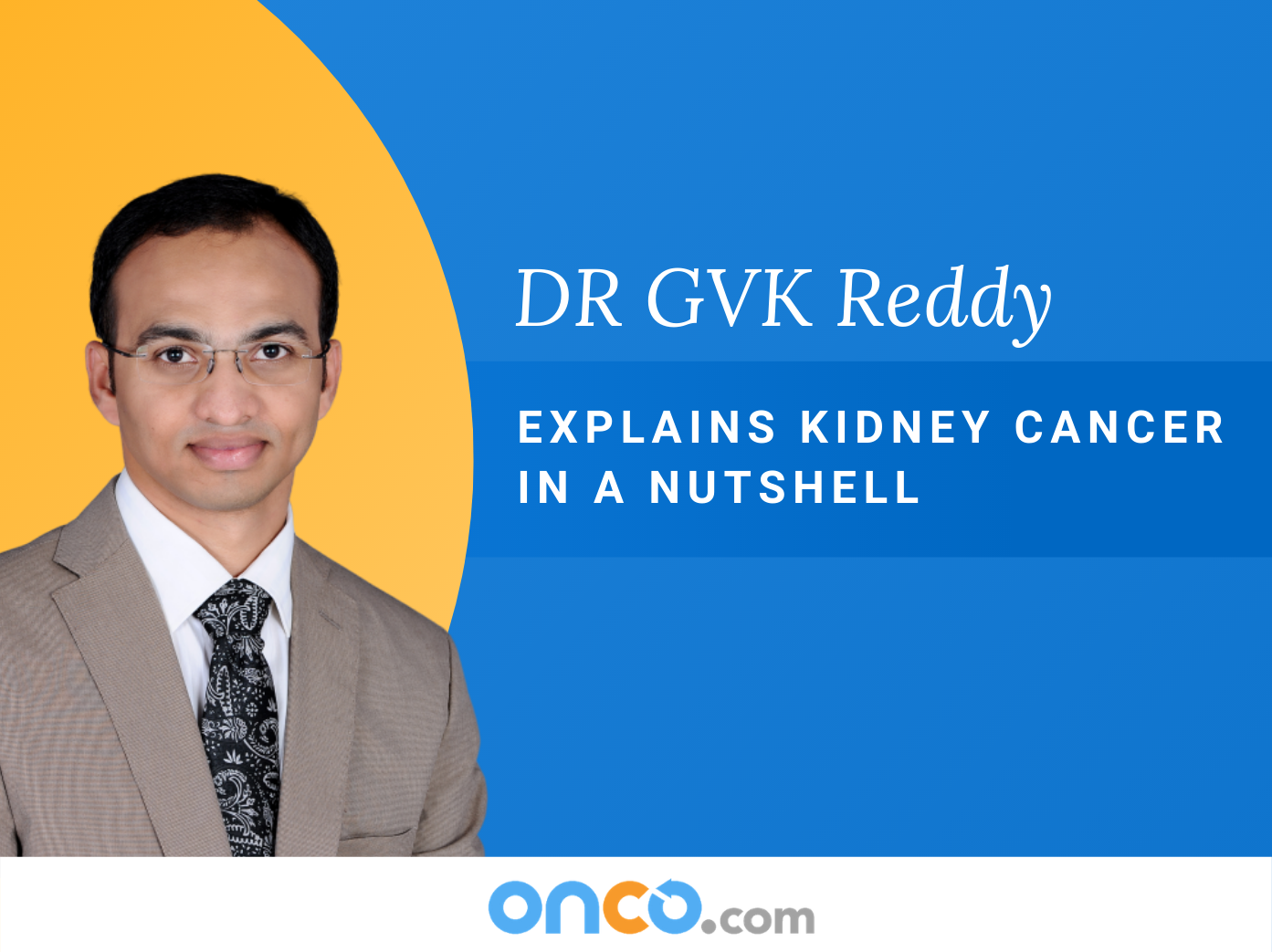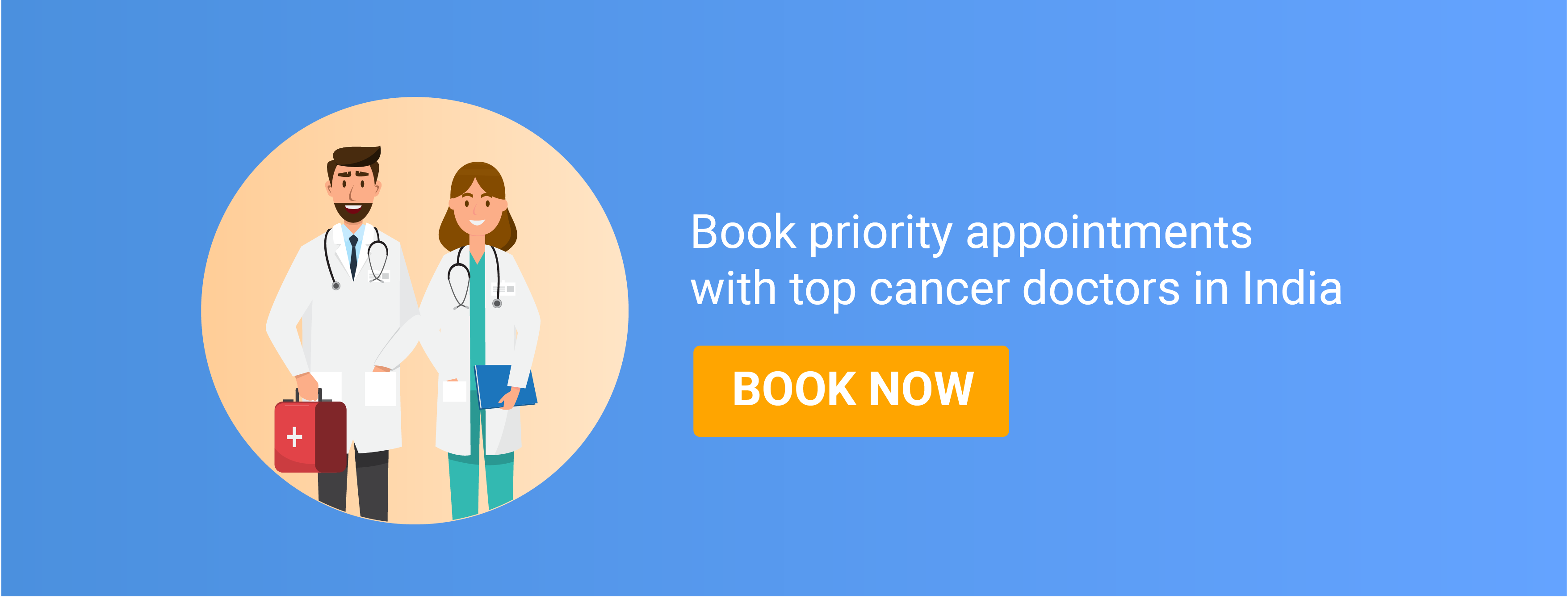Dr G Vamsi Krishna Reddy, senior medical oncologist at Yashoda Hospital in Hyderabad, explains some of the Frequently Asked Questions on kidney cancer.

Q: What are the common symptoms of kidney cancer?
A: It is unusual for patients to present with kidney cancer. They usually present with a lump in the abdomen, or a lump is found during an ultrasound or an imaging conducted for some other purpose. We rarely see patients describe any pain in the flanks, or blood in urine or abdominal mass. Most of the time, the patients present with symptoms that result from spread of the kidney cancer to other organs like lungs or liver or bones.
Q: What are the causes of kidney cancer?
A: There is no test that can prove what the exact cause of your kidney cancer is. But we know of factors which increase the risk of developing kidney cancer. Smoking and hypertension are common factors. Long-standing hypertension patients and those suffering from sickle-cell anemia are at higher risk of kidney cancer. Patients who are in advanced stages of kidney diseases are at higher risk of kidney cancer. Studies from across the world show that obesity is also a factor for kidney cancer. Occupational exposure to by-products of petroleum or gas also play a role. Less than 10% of the cases have hereditary causes, which means that others in the same family have suffered from kidney cancer. There are different types of hereditary kidney cancer syndromes like VHL, tuberous sclerosis, polycystic kidney diseases syndrome etc.
Q: What are the screening tests for kidney cancer? How often should these tests be taken?
A: For the general population which is at average risk, there is no need for screening for kidney cancer. High risk patients are those who have been on dialysis for three to four years, or when there is a family history of kidney cancer where they are first degree related, or there are multiple cases of kidney cancer in the family. For high risk patients, screening for kidney cancer can be done through CT or MRI of the kidney, every six months.
For the general population, during regular health check-up, an ultrasound of the kidney should detect any lumps in the kidney.
Q: Can kidney cancer be prevented?
A: To prevent kidney cancer, the first thing you need to do is stop smoking. Smoking is the leading risk factor for kidney cancer. Other risk factors include obesity and physical inactivity. So, if you maintain an ideal body weight, avoid smoking, follow a healthy diet, you should be able to prevent kidney cancer. If you are at risk of kidney cancer because you have been on dialysis for more than two years, or you have hereditary kidney cancer running in your family, you cannot prevent kidney cancer. So, you need to get regular screening done to detect kidney cancer at the earliest. Regular screening can be in the form of a CT or an MRI scan of the kidney.
Q: What are the treatment options for kidney cancer?
The treatment approach will depend upon whether the kidney cancer is in the localised stage or the advanced stage. Localised stages are stage I, II, and III and surgery is the recommended treatment option. In most cases, the surgery is done at the site of tumour, which decides whether a total nephrectomy (removal of the kidney) or a partial nephrectomy is required. Post surgery, for stage III patients, adjuvant targeted therapy is recommended nowadays. For advanced stage patients, doctor will examine the sites to which the cancer had spread, and suggest if surgery would be a suitable option. This surgery is called cytoreductive nephrectomy, which is recommended to help relieve symptoms or manage the side effects.
Q: Are there any foods to keep away from, to avoid the risk of kidney cancer?
A: Foods that lead to obesity should be avoided. Foods that are rich in fats or refined carbohydrates should be avoided. Research has also shown that regular consumption of Analgesic drugs can increase the risk of kidney cancer.
Q: What are the survival rates for each stage?
A: Kidney cancer is curable cancer. So, for the localised stages (stage I and II) the survival rate is more than 90%. This is based on currently available treatments for kidney cancer. So if someone is diagnosed with early stage kidney cancer, their chances of being cured is more than 90%. For stage III, the survival rate is about 60 – 70%. For stage IV, the five year survival rates are 10 – 20%.
Q: What experts should be consulted to treat kidney cancer?
A: So whenever you have been diagnosed with a lump in your kidney, the first thing you need to do is consult a neurologist or a neuro-oncologist, or a surgical oncologist, who will be analysing the mass. If it is found to be malignant, the first step will be to remove it. Unless, it is a stage IV disease, if which case your oncologist will be involved in the team of doctors, and a decision on whether systemic therapy (immunotherapy, or targeted therapy), or surgery should be initiated first will be taken. So your neuro-oncologist, medical oncologist and surgical oncologist will decide which treatment is most suitable and when. Most of the time, the treatment will involve surgery for the early stages, and systemic therapy (immunotherapy or targeted therapy) for stage IV of kidney cancer.
Q: What advice would you give to caregivers of kidney cancer patients of different stages?
A: If the patient has kidney cancer of the early stages, you need not worry because the survival rates are increasing and we are seeing more than 90% of the patients being cured. So be brave, put your best foot forward and visit your doctor to get your treatment for the appropriate treatment. If the cancer is stage IV, don’t lose hope. Immunotherapy and targeted therapy which we use according to the patient’s fitness, condition, their age, will attempt to bring the disease under control.



